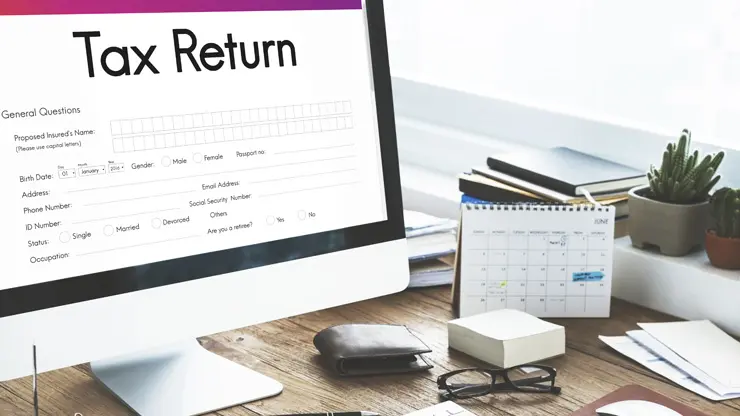Tax time can be a stressful period for anyone, but for those managing a nonprofit organization, the process can be especially challenging. Although nonprofits often enjoy tax-exempt status, they still have to comply with IRS requirements to maintain that status and to ensure transparency and compliance. Below, we delve into the necessary steps to take when preparing a tax return for your nonprofit organization, aiming to make this process as smooth as possible.
Understanding the Basics
Nonprofit organizations, even those that are tax-exempt, generally must file an annual information return with the IRS. The information return demonstrates that the organization continues to qualify for its tax-exempt status. If your nonprofit has employees or generates unrelated business income, you may still have to pay taxes on those items.
Step 1: Determine if You Need to File
Nonprofits with gross receipts totaling 25,000 or more are required to file an annual tax return. Smaller organizations with less than 25,000 in gross receipts are often exempt from this requirement, but should still file an e-postcard (Form 990-N) to remain compliant.
Step 2: Determine Which Form to Use
The specific form your nonprofit must file depends largely on your total receipts:
- Form 990: This is the standard form used by larger nonprofits.
- Form 990-EZ: Nonprofits with total receipts under 100,000 and assets less than 250,000 can opt for this shorter version.
- Form 990-N: Also known as the e-Postcard, this is for organizations with less than $25,000 in annual gross receipts.
Step 3: Fill Out the Tax Return Form
For smaller nonprofits, filling out tax forms can be straightforward, but it’s almost always a good idea to seek assistance from a certified public accountant (CPA), particularly if your organization is more complex. Each form comes with detailed instructions to guide you through the process.
Gathering Documentation
Before you start filling out your form, gather all the relevant documents, such as:
- Receipts
- Bills and invoices
- Employee records
- Bank statements
Having these documents on hand will make the process much smoother and help ensure you don’t miss anything important.
Step 4: File Your Return on Time
The IRS requires nonprofit tax returns by the 15th day of the 5th month after the end of your organization’s fiscal year. For instance, if your fiscal year ends on June 30, your return is due by November 15. You can mail your forms or e-file them.
Extensions
If you think you won’t be able to meet the deadline, the IRS does offer an extension. Be sure to submit the extension form by the due date of your tax return. Failure to file on time, or failing to file at all, can lead to severe penalties, including the loss of your tax-exempt status.
Personal Anecdote
When I was the treasurer of a small nonprofit in Laguna Beach, CA 92651, we relied on the expertise of a local CPA to ensure our compliance with IRS rules. One year, our paperwork was more complex than anticipated. The guidance we received from our certified public accountant was invaluable; it not only simplified the process but also saved us from potential penalties. This personal experience taught me the immense value of professional assistance when it comes to nonprofit tax preparation.
Why Hiring a CPA is Beneficial
Working with a certified public accountant in Laguna Beach, CA 92651, can make all the difference:
- Expertise: CPAs are well-versed in IRS codes and can help ensure that your return is precise and complete.
- Time-Saving: Preparing your tax return can be very time-consuming. A CPA can handle the bulk of the work, allowing you to focus on your organization’s mission.
- Peace of Mind: Knowing your tax return is prepared correctly offers enormous peace of mind. CPAs also provide audit assistance if your return is questioned by the IRS.
Key Takeaways for Nonprofit Tax Preparation
- Know your filing requirements: Understand which form to file based on your organization’s income.
- Prepare diligently: Gather all necessary documents and fill out forms meticulously.
- File on time: Meeting deadlines is crucial to maintain your nonprofit’s tax-exempt status.
- Seek professional help: A local CPA in Laguna Beach, CA 92651, can provide the expert guidance needed.
Conclusion
Navigating the intricacies of preparing a tax return for a nonprofit can seem daunting, but with the right preparation and professional assistance, it doesn’t have to be. By understanding your filing requirements, diligently gathering the necessary documentation, and potentially enlisting the help of a certified public accountant, you can streamline the process and focus on what’s most important—advancing the mission of your nonprofit organization.
For those in Laguna Beach, CA 92651, and surrounding areas, consider reaching out to a local CPA who specializes in nonprofit accounting. Their expertise can provide peace of mind and help ensure your organization remains compliant and focused on its mission.




